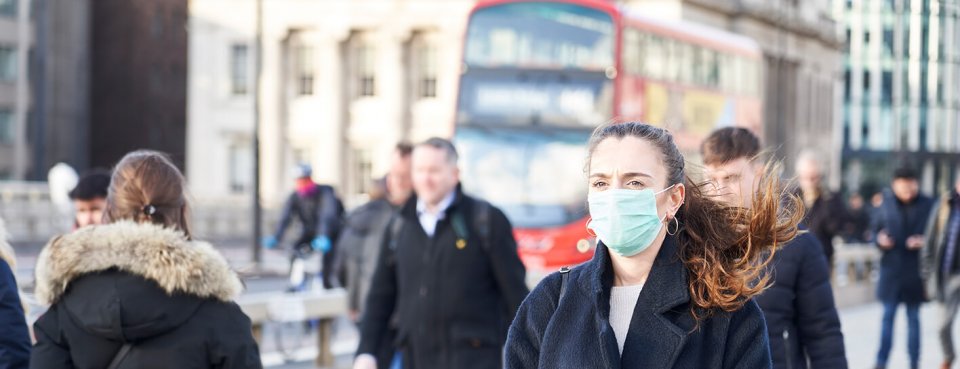Omicron: What should employers do now?

Please note: All information correct at time of writing on 30 November 2021. We do our very best to make sure our information is as up to date as possible, but we’d encourage you to check the government website for updates as they happen. This guidance relates to newly reintroduced measures in England. For clients in other regions of the UK, we’d encourage you to check the relevant government websites for specific rules.
On 27 November 2021, the government announced that the recent emergence of the new COVID-19 variant, Omicron, means it’s necessary to put tougher measures in place across England. So far, the government has suggested that the new variant is heavily mutated. Rapid research is being undertaken to understand more about the Omicron variant, including its spread and vaccine effectiveness.
These measures include:
- Mandatory face coverings in retail settings, personal care services, public transport, and communal areas of education settings (year 7 and above, unless exempt). For full government guidance on face coverings and exemptions, please visit the government’s website here.
- PCR tests on or before day two for all international arrivals
- Self-isolation for contacts of suspected or confirmed Omicron cases (even if fully vaccinated)
- Changes to the red list for international travel
- Wider booster vaccine roll-out
These recent developments suggest that the approach taken by the government could be even more cautious in the future as new variants of coronavirus emerge.
That means that businesses need to be prepared. With the new measures already in place and uncertainty over whether further measures will be necessary, it’s important that you are doing all you can as an employer to protect your business from COVID-19 and the impact of these sudden changes in guidance.
What should you do now?
- Review your risk assessments
-
We recommend reviewing your COVID-19 risk assessments at regular intervals and as risks change. It’s particularly important to do so if you work within the industries most affected by the announcement (retail, personal care and transport). Make sure you gain evidence (such as a signature) that your employees and workers have seen the risk assessment. Please note, if you’ve purchased our Southalls services, your consultant will be in touch where risk assessments require an update.
- Consult with your workforce
-
Once you’ve decided on what controls are required within your risk assessment, you must consult with your employees and workers to make sure that they know what’s required of them and are able to suggest any improvements and highlight concerns.
- Ensure your people self-isolate when required
-
It’s important to make your workforce aware that the self-isolation rules are different for those infected with the Omicron variant. Unlike with the other variants, all close contacts of those with suspected or confirmed cases of the Omicron variant must self-isolate regardless of whether they are under 18 or double vaccinated.
- Update your people on travel rules
-
The above also applies to those who have been travelling overseas. Even if someone is fully vaccinated, if they arrive in England after 4am on Tuesday 30 November, they must:
- self-isolate
- take a PCR test before the end of the second day after their arrival
- only leave self-isolation once the PCR test result is confirmed as negative
It’s a good idea to keep records of any consultation or messaging to your workers informing them of the changes in rules to prove your compliance.
- Update signage and information
-
Ensure that signage and customer-facing information is up to date and reflects your controls.
- Refresh your training
-
Refresh staff training to ensure that they are up to speed with your control measures. You can do this via tools such as briefings, elearning modules, and toolbox talks.
How we can help
We know it can be tough to stay compliant, particularly in the current climate. If you have any questions about the COVID-19 measures your business should have in place, please contact our expert team on our 24/7 advice line. Simply call 0345 844 4848.
If you’re not a Citation client, please contact your consultant or email ask@citation.co.uk.

